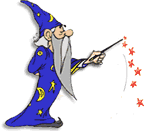 |
Rod Rosenstein
image source: Wikipedia |
Rod Rosenstein, Deputy Attorney General, has been in the news a lot lately. Today he defends himself as a victim of false reporting in connection with a report that he proposed using a wire secretly to tape conversations with Donald Trump (in an effort to impeach him).
He adamantly denies the accusation.
Back in August, another statement--reported in Bloomberg's
Big Law Business--has relevance for this unfolding story:
Deputy Attorney General Rod Rosenstein called on lawyers to “accept a personal duty to keep the republic by teaching” the principles of the rule of law, which he said was critical to American democracy.
Upholding “the rule of law is not just about litigation in courtrooms,” Rosenstein said. “It is also about education in classrooms and living rooms.”
When anyone is a victim of (dis)information, what are they to do? I guess you do what Rosenstein did today: deny it publicly (he has no trouble being picked up by the press) and hope that lawyers come to your aid by upholding the rule of law, including innocent until proven guilty. Interesting that he calls on lawyers to do the teaching.
Not many lawyers may heed the call to stand before students to impress on them how the law should work, but it's an interesting idea. Imagine a class or library session on evaluation that involves a lawyer. With so many accusations in the news, both justified and unjustified, what is the right approach to take? Rosenstein touches on that in this statement from the same Bloomberg article:
“The term ‘rule of law’ describes the government’s obligation to follow neutral principles,” and “reserve judgment until we have heard from all parties and completed a fair process,” Rosenstein said.
It requires that we “avoid confirmation bias and remain open to the possibility that the truth may not match our preconceptions,” he said.
In an age of disinformation, this is sage advice for students to practice. It doesn't require a lawyer to teach it--any teacher or adult should be able to make this claim. Investigative searching, to be fair, must do the same: withhold judgment until the facts are checked.
In Rosenstein's recent predicament, the facts may be hard to check, as it may come down to who heard him say what and in what context. What words were used and what did they mean? Until then, it's good not to jump to conclusions, otherwise confirmation bias can play havoc.



















